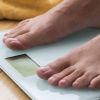-
 +27 +1
+27 +1Exercise May Help Reduce Depression in Teens
Depression is a serious mental health condition that has been connected with suicidal behaviors among adults and youth. Symptoms of depression may include: sadness, feeling hopeless, loss of interest in hobbies, decreased energy, and thoughts of death or suicide (U.S. Department of Health and Human Services, HHS; 2015). In a study published in the December 2017 issue of Evidence-Based Practice in Child and Adolescent Mental Health, the authors report that exercise may help reduce depression symptoms among adolescents.
-
 +16 +1
+16 +1Parkinson's could be slowed by molecule linked to exercise
A protein molecule which increases with exercise appears to prevent the advance of Parkinson’s symptoms and may be the key to future treatments, experts say. Doctors from the Colorado University School of Medicine believe vigorous exercise could be linked to increased production of a brain-protecting protein molecule, DJ-1. The researchers believe that DJ-1 plays a role in preventing the build-up of defective molecules which form harmful protein clumps, known as Lewy bodies, in the brains of Parkinson's patients.
-
 +6 +1
+6 +1A Pill to Make Exercise Obsolete
It was late summer, and the gray towers of the Salk Institute, in San Diego, shaded seamlessly into ocean fog. The austere, marble-paved central courtyard was silent and deserted. The south lawn, a peaceful retreat often used for Tai Chi and yoga classes, was likewise devoid of life, but through vents built into its concrete border one could detect a slight ammoniac whiff from more than two thousand cages of laboratory rodents below.
-
 +22 +1
+22 +1‘Fat but Fit’? The Controversy Continues
Can you be fit and healthy, even if you’re overweight? And will working out, despite the extra pounds, reduce your risk of a heart attack? The idea that you can be “fat but fit” has long been controversial. While health experts endorse physical activity as beneficial, many doctors view the concept of being “fat but fit” with suspicion.
-
 +26 +1
+26 +1You can exercise yourself to death, says new study
Too much exercise can kill you, scientists have revealed. White men who work out at least seven-and-a-half hours a week are nearly twice as likely to suffer from heart disease than those who do a moderate amount, a new study shows. Researchers in Chicago compared 25-year exercise patterns and made the surprising discovery that very active white men are 86 percent more likely to experience a buildup of plaque in the heart arteries by middle age.
-
 +19 +1
+19 +1Science says that just one hour of exercise a week could reduce depression
Study published in The American Journal Of Psychiatry, delivered a surprisingly good news. Researchers revealed that even one hour a week of any type of exercise can prevent depression in the future. Researchers said that " we’ve known for some time that exercise has a role to play in treating symptoms of depression, but this is the first time we have been able to quantify the preventative potential of physical activity in the terms of reducing future levels of depression."
-
 +34 +1
+34 +1People spend more time sitting on the toilet each week than exercising, study finds
People in the UK spend more time sitting on the toilet every week than exercising, a study has found.
-
 +32 +1
+32 +1Health Check: in terms of exercise, is walking enough?
Fitness, strength and mobility are important for us to live happy and healthy lives, how much does walking improve these measures?
-
 +1 +1
+1 +1Fitness tracker firm Jawbone faces liquidation - BBC News
The company has also emailed some customers to say it hasn't "forgotten" them.
-
 +30 +1
+30 +1The way we run protects our upper bodies but our legs suffer
In-depth analysis has revealed how running sends shocks through the body in greater detail than ever before, and hints at new ways to prevent common injuries
-
 +22 +1
+22 +1New Bloomberg School study finds 19-year-olds as sedentary as 60-year-olds
A new study from the Johns Hopkins University Bloomberg School of Public Health suggests that physical activity among kids and teenagers is lower than previously thought, and that young adults over the age of 20 show the only increases in activity over the lifespan—after the age of 35, the study found, activity levels declined through midlife and older adulthood.
-
 +29 +1
+29 +1Why Weight Training Is Ridiculously Good For You
For strength and longevity, resistance training may be the best kind of exercise
-
 +12 +1
+12 +1Yoga Classes Should Be Shorter
The light in me honors the light in you, but is also extremely busy. By Olga Khazan.
-
 +16 +1
+16 +1The 9-Minute Strength Workout
Strength training is the key to flexibility, mobility, improved performance and lower injury risk. And it doesn't have to take hours at the gym to see results. It’ll take only nine minutes of exertion to complete a full-body strength-building workout. By Dr. Jordan Metzl, Karen Barrow.
-
 +32 +1
+32 +1Inactive teens develop lazy bones, study finds
Inactive teens have weaker bones than those who are physically active, according to a new study. Researchers with UBC and the Centre for Hip Health and Mobility, at the Vancouver Coastal Health Research Institute, measured the physical activity and bone strength of 309 teenagers over a specific four-year period that is crucial for lifelong, healthy skeletal development.
-
 +37 +1
+37 +1Pumping iron: Lighter weights just as effective as heavier weights to gain muscle, build strength
New research is challenging traditional workout wisdom, suggesting that lifting lighter weights many times is as efficient as lifting heavy weights for fewer repetitions. It is the latest in a series of studies that started in 2010, contradicting the decades-old message that the best way to build muscle is to lift heavy weights.
-
 +38 +1
+38 +1Healthiest weight just might be ‘overweight’
Packing on a few pounds may not be such a bad thing. As a group, overweight people are living the longest nowadays, suggests an almost four-decade study in Denmark published May 10 in JAMA. And obese people seem to be at no higher risk of dying than those of normal weight. The new analysis fuels ongoing debate about what’s a healthy body mass index — especially in light of rising obesity rates, improved heart health treatments and other factors influencing health and longevity.
-
 -1 +1
-1 +1Increasee and build your bodybuilding experience
Discover the latest reviews, tips and advice on all bodybuilding and sports supplements.
-
 +32 +1
+32 +1How fat cells work and why it’s impossible to “burn” them off
When we think about our weight it’s often tied to how much fat we have in our bodies. But earlier this year, scientists debunked body-mass index (BMI), a calculation of someone’s percentage of body fat based on their height and weight, as a measure (paywall) of overall health. The authors argued that having a high BMI didn’t necessarily mean that patients faced the same health risks that obesity can lead to; conversely, having a low BMI didn’t mean that patients were healthier.
-
 +44 +1
+44 +1Exercise might slow rate of mental decline by 10 years for older people
Mentally, we all slow down a little bit as we age. It gets harder to recall names, or we forget where we put our keys, or the car for that matter. Physically, an older brain doesn’t work as fast as it used to. But scientists think there might be one thing that could help slow down this natural aging process. A study published online this week in Neurology found that older people who exercised regularly experienced a slower rate of mental decline.
Submit a link
Start a discussion




















